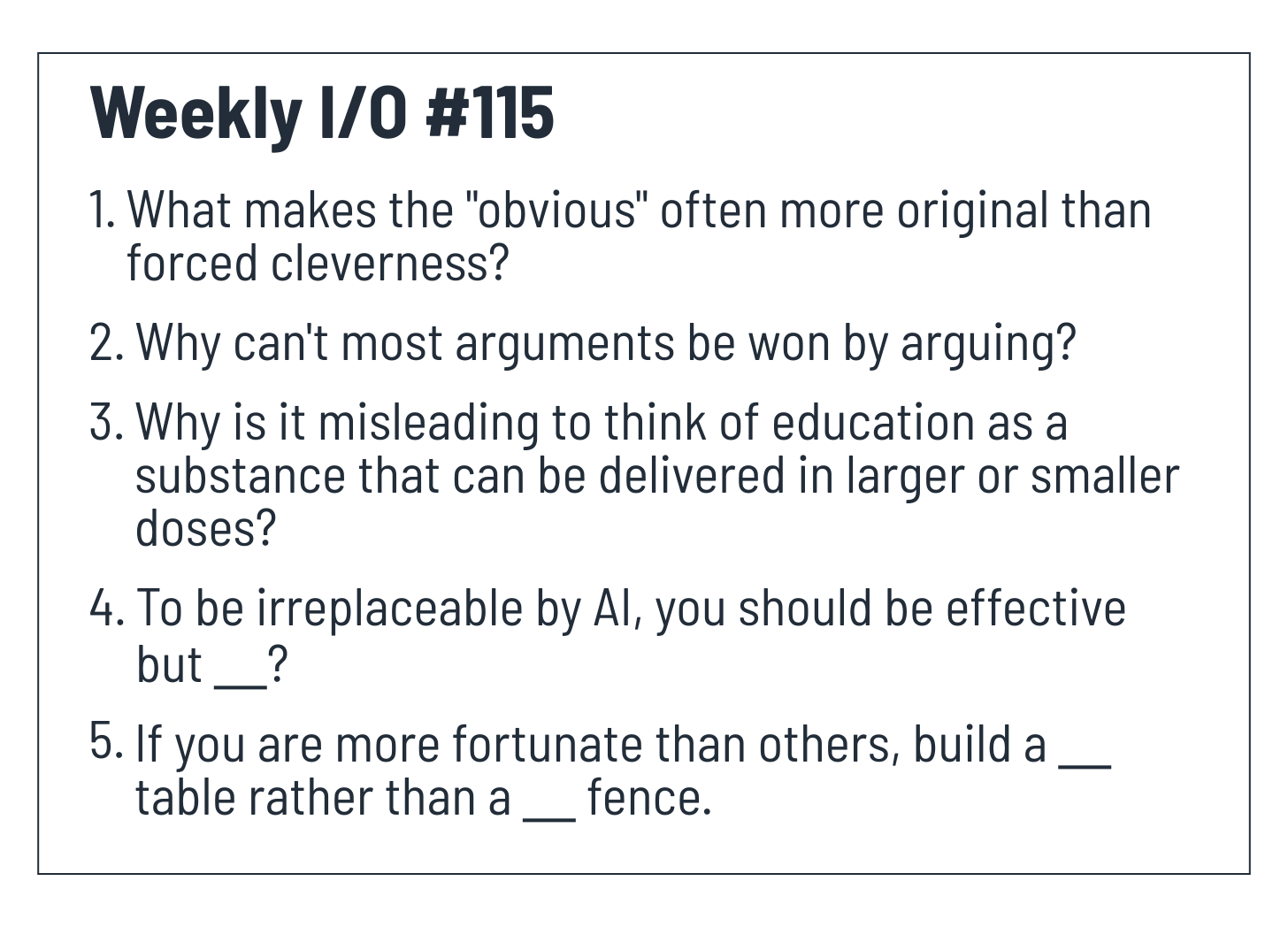Don't chase originality, Arguments can't be won, Education is not a substance
Weekly I/O #115: Originality is Being Obvious, Can't Win by Arguing, Education is not a substance, Effective but Unpredictable, Longer Table not Taller Fence
Hey friends,
Here’s your weekly dose of inputs and outputs. Happy learning!
Help you absorb better with Forward Testing Effects
Input
Here’s a list of what I learned this week.
1. True originality comes from trusting first thoughts and being obvious, instead of chasing unusual ideas or forcing cleverness. Trying too hard to be original often produces clichés and mediocrity.
Book: Impro: Improvisation and the Theatre
What if the most original thing you can do is stop trying to be original?
Theatre teacher Keith Johnstone found that many students, artists, and improvisers choke their creativity because they are desperate to impress with novelty and cleverness. They confuse originality with strangeness and forget that strangeness often comes from copying old tricks.
In theatre, audiences laugh hardest at the obvious line delivered with confidence. Asked “What’s for dinner?”, a bad improviser will desperately try to think up something original. But whatever they say, they will be too slow. They might finally drag up something like ‘fried mermaid’. If they’d just said ‘fish’, the audience would have been more delighted because it feels authentic and human.
The more obvious a performer is, the more original they appear.
It sounds paradoxical, but because no two people are the same, leaning into what first comes to mind reveals individuality more than straining for cleverness. Attempts to be “avant-garde” by imitating the past oftentimes recycle clichés.
Keith Johnstone’s point applies beyond theatre. An artist who is inspired is being obvious. They are not constantly weighing one idea against another. They are accepting their first thoughts. Beethoven said, “You ask me where I get my ideas? That I can’t say with any certainty. They come unbidden, directly, I could grasp them with my hands.” Mozart also admitted that he did not chase originality, but rather simply allowed ideas to come.
If Mozart had tried to be original, it would have been like a man at the North Pole trying to walk north. The effort moves him away from himself.
True originality arises when you stop reaching for it and work from what feels obvious and natural. Chasing originality can take you far away from your true self and result in mediocre work.
2. Most arguments are not really about the argument, so most arguments can’t be won by arguing.
Book: Excellent Advice for Living
In Empathy or Solution, neuroscientist Lisa Feldman Barrett shared that when our partner or friends are feeling something like anxiety or anger, the first thing that we have to do is to figure out what they want.
Sometimes what people want is a solution, but most of the time what they want is empathy. People want to feel heard, but they rarely want to feel preached at.
This principle also applies to arguments. People want to feel understood, regardless of whether their arguments contain hundreds of logical gaps or none whatsoever. Most arguments are not really about the argument, so most arguments can’t be won by arguing.




